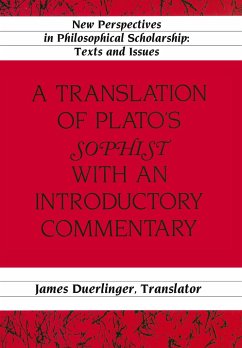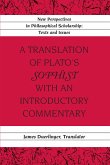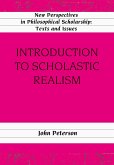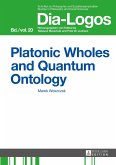This translation of Plato's Sophist conveys the peculiar nature of the doctrines expressed in the Greek text, and it includes an introduction that attempts - without recourse to contemporary technical philosophical ideas - to explain these doctrines from the perspective of how Plato's philosophy was understood by Aristotle and the ancient Platonists. For this reason the book is especially suitable for use in undergraduate courses on Plato and in introductory courses on the history of ancient philosophy.
"In this book James Duerlinger translates Plato's 'Sophist' and introduces the translation from the perspective of Plato's philosophy as it was understood in the ancient world. This approach to understanding a Platonic dialogue is eminently sensible, and it is surprising that it is not more often employed by scholars. The Plato of much of the contemporary scholarship on the dialogues seems to have lost touch with the Plato of the Platonic tradition itself. That Duerlinger's book presents us once again with the Plato of the tradition is a welcome development. It is hoped that more scholars will take this approach and rediscover the origins of the perennial philosophy." (Huston Smith, Author of 'Forgotten Truth')
"James Duerlinger has made an important contribution to scholarship on Plato's 'Sophist'. Rather than approaching the text from the perspective of modern philosophical problems about negative existential statements, he locates Plato's discussion and analysis within the context of the ancient debate about non-being. Many of Duerlinger's claims are refreshingly novel and will challenge dedicated Plato scholars. His translation is accurate and readable." (Henry Teloh, Author of 'The Development of Plato's Metaphysics')
"James Duerlinger has made an important contribution to scholarship on Plato's 'Sophist'. Rather than approaching the text from the perspective of modern philosophical problems about negative existential statements, he locates Plato's discussion and analysis within the context of the ancient debate about non-being. Many of Duerlinger's claims are refreshingly novel and will challenge dedicated Plato scholars. His translation is accurate and readable." (Henry Teloh, Author of 'The Development of Plato's Metaphysics')








